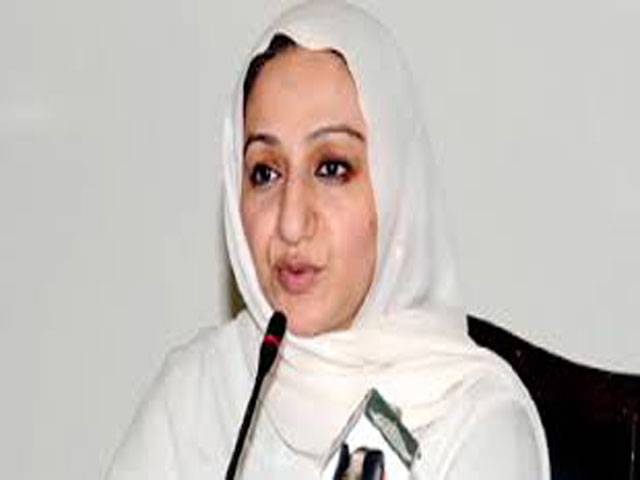Islamabad - The Minister of State for National Health Services Regulations and Coordination (NHSRC) Saira Afzal Tarar on Tuesday said that institutions cannot work transparently without the systematic accountability and monitoring.
She was addressing to a ceremony organised by Field Epidemiology and Laboratory Training Program (FELTP) National Institute of Health (NIH).
The minister said that federal government is still supporting all provinces to improve health capacity in the country, and working with international partners in 19 different areas to support provinces in emergency health preparedness.
She communicated that through the federal support, FELTP, the government is ensuring that provinces have required critical workforce in case of any major health emergency.
“The government is not only providing this specialized training with the support of Centres for Disease Control and Prevention (CDC), USA to Pakistani health departments but also Government of Afghanistan has sent their top officials for this training,” said the minister.
The minister said that more than 120 outbreaks of different disease were timely detected and responded to, in the first seven months of the year. Thousands of children were vaccinated in of these investigations saving lives of thousands.
Dr Rana Jawad Asghar, Resident Advisor FELTP, informed, that Pakistan FELTP has become number one training program in the region and stands in top three globally due to the number of oral scientific presentation accepted by FELTP conferences over the years.
He also said Pakistan FELTP program has won many global scientific awards for Pakistan including 2016 Annual CDC Director Award of Excellence in Outbreak Investigation and Response which is given to only one country among 70 countries who have FELTP programs.
Executive Director Dr Mukhtar Ahmad, NIH welcomed participants to this course and told that to have an effective disease control in the country the first step is to build an effective disease surveillance system.
He added that surveillance system health department will not only respond timely to any outbreak but also evaluate its own health interventions.
Unfortunately, Pakistan lacks an integrated disease surveillance response (IDSR) system. To address the gaps, NIH is working with FELTP/CDC, Public Health England, World Health Organization and other international partners to start IDSR as with the initiation of IDSR surveillance reporting will further improve.
He told that currently FELTP and provincial health departments are working through Disease Surveillance and Response Units (DSRU) to respond an event based surveillance.






